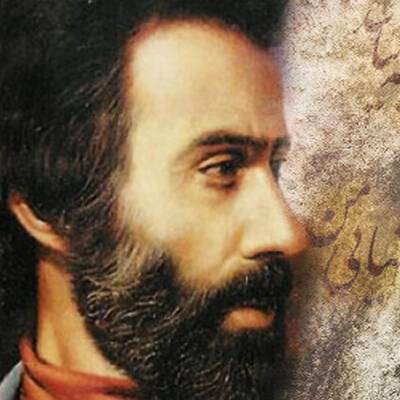
Among the contemporary poets, there were not so many who can penetrate deeply into the hearts and also, there was as a few who was popular as she was. Her Diwan was published many times during a short period and it was appreciated every time. Parvin learned the basic principals in poetry and literature from his father, Yusuf Etesami (E'tesam-al-Molk), one of the scholars, writers, and the founder of Bahar journal. She dedicated her Diwan to him because he was involved in training her talent more than the others. He was her first critic and Parvin’s first poems were published in Bahar Journal. And no one believed that the poet was a woman as she wrote a poem in which she said that although some of the scholars considered her as a man, they should know that Parvin is not a man. In that time in Iran, there were a few schools for girls, so it was not normal to have such a poet among the women.
Parvin was born in 1285 SH in Tabriz. She finished her studies in high school in Tir 1303 SH in Tehran girl school. She read an article in the graduation ceremony with the title the Woman and History. “There are many waves and storms that happened in the east, and one of the reasons for their failure and incapability is due to not paying enough attention to educate women. They considered the woman as a vicious member of humanity and destroyed half of their force. The desperate mothers grow their children with ignorance… Iran, our beloved country, whose magnificent works are honored worldwide, and present Europe owed its ancient civilization; And who has suffered heavily from the passions and problems of the east; Nowadays, searches for its lost and hastens to meet its felicity…” after her graduation, Parvin taught Persian and English literature in the same high school she was graduated from.
Being beautiful, expressive and pleasant, her poems take us to the past, to the time that Muhtasib (supervisor of bazaars and trade in the medieval Islamic countries) was the police and the judge, was the unquestionable symbol of power. (In her poetry) there are some conversations, for example between onion and garlic, needle and tailor, diamond and goldsmith, are always useful dialogues in social life.
She died of typhoid fever in Farvardin 1320 SH and was buried in Qom next to his father in the familial tomb.
